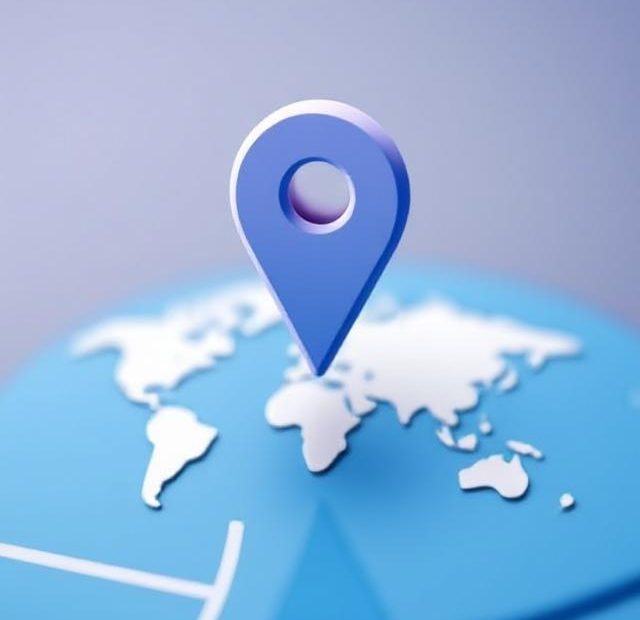Local SEO in 2025 is more competitive and data-driven than ever. As search engines get smarter, ranking in your city or neighborhood requires more than just stuffing your website with “near me” phrases. You need to target local keywords that match real search intent and align with what your audience is actually typing into Google.
Whether you’re a plumber in Austin, a dentist in Toronto, or a yoga studio in Manchester, finding the best local keywords is the first step toward getting found online and dominating local search results.
In this post, you’ll learn practical strategies to discover high-performing local keywords in 2025 and how to use them effectively to attract nearby customers.
What Are Local Keywords?
Local keywords are search terms that include a specific geographic location or imply local intent. These phrases help businesses rank for searches made by people in a particular city, neighborhood, or region.
Examples:
-
“best pizza in Chicago”
-
“emergency dentist near me”
-
“HVAC repair Brooklyn”
-
“wedding photographer Los Angeles”
In 2025, search engines continue to prioritize localized and personalized results, making it crucial to align your content with how people search locally.
Why Local Keywords Matter
Targeting the right local keywords can:
-
Boost your visibility in Google’s Local Pack and Google Maps
-
Attract high-intent, ready-to-buy customers
-
Improve organic traffic to your website
-
Increase calls, bookings, or store visits
-
Help you compete effectively in your niche area
Without local keywords, your SEO strategy is like shooting arrows in the dark.
How to Find the Best Local Keywords in 2025
1. Start with Your Core Services + Location
Begin by listing your main services or products, then pair them with your city, neighborhood, or service area.
Example:
-
If you’re a home cleaning service in Denver, try:
-
“house cleaning Denver”
-
“apartment cleaning near LoDo”
-
“move out cleaning Denver CO”
-
Think about:
-
What services do you offer?
-
Where is your target audience located?
-
How do customers refer to the area (e.g., city nicknames or local landmarks)?
2. Use Google Autocomplete and Related Searches
Google’s built-in suggestions are goldmines. Just type your main keyword into the search bar and let Google fill in the rest.
Example:
-
Typing “hair salon Miami” may suggest:
-
“hair salon Miami near me”
-
“hair salon Miami open late”
-
“best hair salon Miami Beach”
-
Also, scroll to the bottom of the results page to find “related searches”—these can give you great variations and long-tail keyword ideas.
3. Leverage Google Keyword Planner (Free Tool)
Even in 2025, Google Keyword Planner remains a reliable tool to discover:
-
Search volume trends
-
Competition levels
-
Keyword variations
How to use it:
-
Enter seed keywords like “roofing Boston”
-
Filter by location
-
Explore relevant keywords with high volume and low to medium competition
Pro Tip: Focus on keywords with clear commercial intent, like “emergency plumber London” or “buy tires San Diego.”
4. Check Out Local Competitors
Want to know what’s working? Analyze top-ranking competitors in your area.
Use SEO tools like:
-
Ubersuggest
-
SEMrush
-
Ahrefs
-
Moz
Look at:
-
What keywords they rank for
-
Their top landing pages
-
Meta titles and descriptions
This gives insight into what Google is rewarding and helps you find untapped keyword opportunities.
5. Use ‘Near Me’ and Voice Search-Friendly Phrases
“Near me” searches continue to grow in 2025, especially with mobile and voice assistants like Siri, Alexa, and Google Assistant.
Examples:
-
“coffee shop near me open now”
-
“best Thai restaurant near downtown Boston”
Include conversational and question-based keywords, like:
-
“Where can I find a reliable mechanic in Phoenix?”
-
“Is there a dog groomer near me?”
Use tools like AnswerThePublic or AlsoAsked to find more voice search-style phrases.
6. Target Hyperlocal Areas
Don’t just go after big city names—think smaller.
Instead of only targeting “Houston,” try:
-
“dentist in Midtown Houston”
-
“carpet cleaning in Katy, TX”
Google now understands suburbs, neighborhoods, and micro-regions better than ever, making hyperlocal SEO incredibly effective.
Use your Google Business Profile insights to identify where your customers are coming from, and build content or landing pages tailored to those areas.
7. Use Social Media and Review Sites for Keyword Ideas
People often leave reviews or comments that include location-based language.
Scan platforms like:
-
Yelp
-
TripAdvisor
-
Facebook
-
Reddit
Example:
-
A review might say, “Best Thai food near Capitol Hill!”—now you know to target “Thai food Capitol Hill” as a keyword.
8. Include Long-Tail and Niche-Specific Keywords
Broad keywords like “lawyer New York” are hard to rank for. Instead, try more specific long-tail keywords like:
-
“immigration lawyer Queens NY”
-
“24/7 DUI attorney in Bronx”
These may have lower search volumes but deliver more qualified traffic that converts.
Where to Use Local Keywords
Once you’ve found your best local keywords, place them strategically:
-
In your website’s meta titles and descriptions
-
On service pages (one page per location/service combo if possible)
-
In your Google Business Profile description
-
On your homepage and footer
-
Inside blog posts targeting local topics
-
In your image ALT tags and headers
Don’t forget to write naturally. Keyword stuffing in 2025 is a red flag to Google and may hurt your rankings.
Final Thoughts
Finding the best local keywords in 2025 means digging deeper than general phrases. You need to think like your customer, leverage data from search tools, and get specific with your geography.
By combining neighborhood-level targeting, voice-friendly phrasing, and competitor research, you can uncover keywords that attract high-intent local traffic—and give your business a major edge.
The right local keywords don’t just get you on the map—they get customers through your door.
Also, you can learn more about Schema Markup here.
